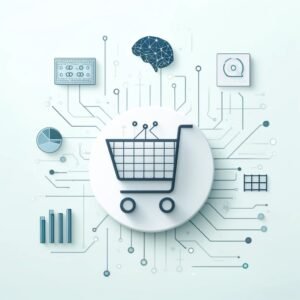In the rapidly evolving landscape of the beverage industry, the integration of the Internet of Things (IoT) has emerged as a pivotal driver for achieving operational excellence and enhanced customer satisfaction. This article explores the strategic application of IoT technologies within beverage supply chains, illuminating pathways for industry professionals to leverage these innovations for competitive advantage.
The IoT Revolution in the Beverage Industry
The Internet of Things refers to the network of interconnected devices that collect and exchange data through the internet. In the context of the beverage industry, IoT technology manifests in various forms, from smart sensors that monitor production processes to RFID tags that track inventory levels in real-time. The deployment of IoT devices facilitates a more granular approach to data collection and analysis, enabling companies to optimize operations, reduce costs, and respond more quickly to market demands.
1. Enhancing Production Efficiency
One of the primary applications of IoT in the beverage industry is in the realm of production efficiency. Smart sensors installed on production lines can monitor conditions in real time, allowing for immediate adjustments to maintain product quality and minimize waste. For example, a leading global beverage company implemented IoT sensors to monitor the temperature and humidity levels during the bottling process, leading to a significant reduction in spoilage rates and improved product consistency.
2. Inventory and Supply Chain Optimization
IoT technology also plays a crucial role in inventory management and supply chain optimization. RFID tags and IoT sensors enable precise tracking of products throughout the supply chain, from production facilities to retail outlets. This visibility not only helps in managing stock levels more effectively but also in enhancing the traceability of products, which is increasingly important for compliance with food safety standards.
For instance, a prominent beverage manufacturer utilized IoT-enabled RFID tags to automate their inventory tracking system. This integration resulted in a 20% reduction in inventory costs and a 15% decrease in supply chain inefficiencies.
3. Predictive Maintenance
Another significant advantage of IoT in the beverage industry is predictive maintenance. By equipping machinery with IoT sensors, companies can predict equipment failures before they occur, thereby minimizing downtime and maintenance costs. Predictive analytics tools analyze data from sensors to identify patterns indicative of potential equipment issues, allowing maintenance to be scheduled at optimal times without disrupting production.
A case in point is a brewery that implemented IoT sensors on its fermenting tanks. The sensors provided data that helped predict yeast health and fermentation levels, preventing over or under-fermentation, which can affect flavor and lead to product waste.
Implementing IoT: Challenges and Considerations
Despite the benefits, the integration of IoT technologies into beverage supply chains is not without challenges. Concerns regarding data security, the initial cost of technology adoption, and the need for skilled personnel to manage IoT systems are significant hurdles. Furthermore, ensuring interoperability between different IoT systems and legacy technologies remains a complex issue that requires strategic planning and investment.
Strategic Recommendations
To successfully integrate IoT into beverage supply chains, companies should consider the following strategic actions:
- Invest in scalable IoT solutions that can grow with the business and integrate seamlessly with existing systems.
- Focus on cybersecurity measures to protect sensitive data generated and transmitted by IoT devices.
- Develop a skilled workforce capable of managing and analyzing IoT data to derive actionable insights.
- Collaborate with technology providers who have proven expertise in the beverage industry to tailor IoT solutions that meet specific business needs.
Conclusion
The integration of IoT technologies into beverage supply chains represents a transformative shift towards more agile, efficient, and customer-centric operations. By embracing IoT, beverage companies can not only streamline production processes and enhance supply chain visibility but also achieve substantial cost savings and improve overall product quality. As the industry continues to evolve, the strategic adoption of IoT will be a critical factor in maintaining competitive advantage and responding effectively to consumer demands.
Bibliography
- Lee, I., & Lee, K. (2015). The Internet of Things (IoT): Applications, investments, and challenges for enterprises. Business Horizons, 58(4), 431-440.
- Whitmore, A., Agarwal, A., & Xu, L. D. (2015). The Internet of Things—A survey of topics and trends. Information Systems Frontiers, 17(2), 261-274.
- Xu, L. D., He, W., & Li, S. (2014). Internet of Things in industries: A survey. IEEE Transactions on Industrial Informatics, 10(4), 2233-2243.
- “How IoT Can Drive Efficiency in Beverage Production.” Food & Beverage Industry News. Retrieved from https://www.foodbev.com/news/how-iot-can-drive-efficiency-in-beverage-production/
- “RFID and IoT: The Heartbeat of the Beverage Industry.” Beverage Daily. Retrieved from https://www.beveragedaily.com/Article/2021/02/15/RFID-and-IoT-The-Heartbeat-of-the-Beverage-Industry
- “Predictive Maintenance: A Must for Beverage Manufacturers.” Drinks Industry Journal. Retrieved from https://www.drinksindustryjournal.com/predictive-maintenance-a-must-for-beverage-manufacturers/

